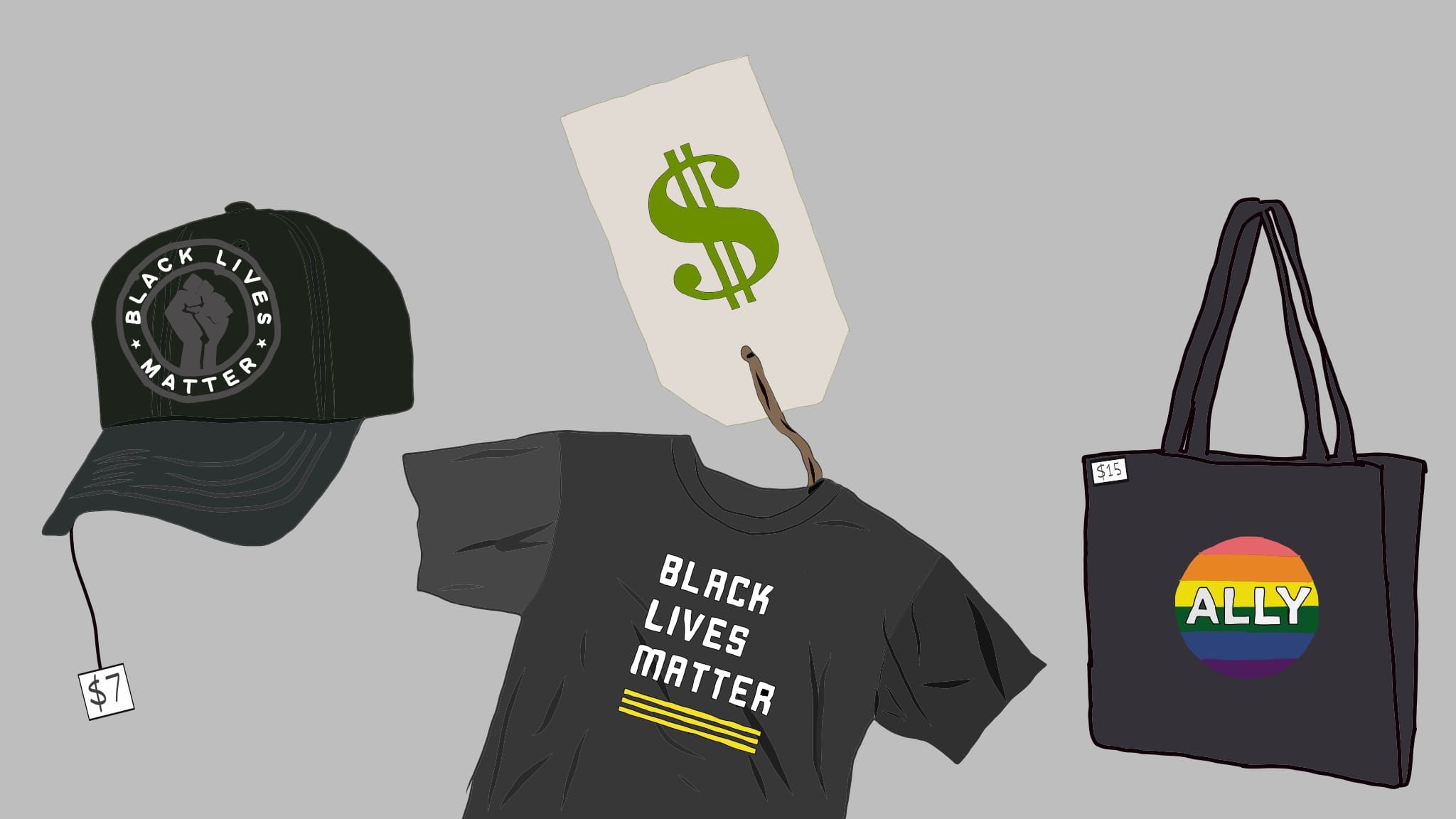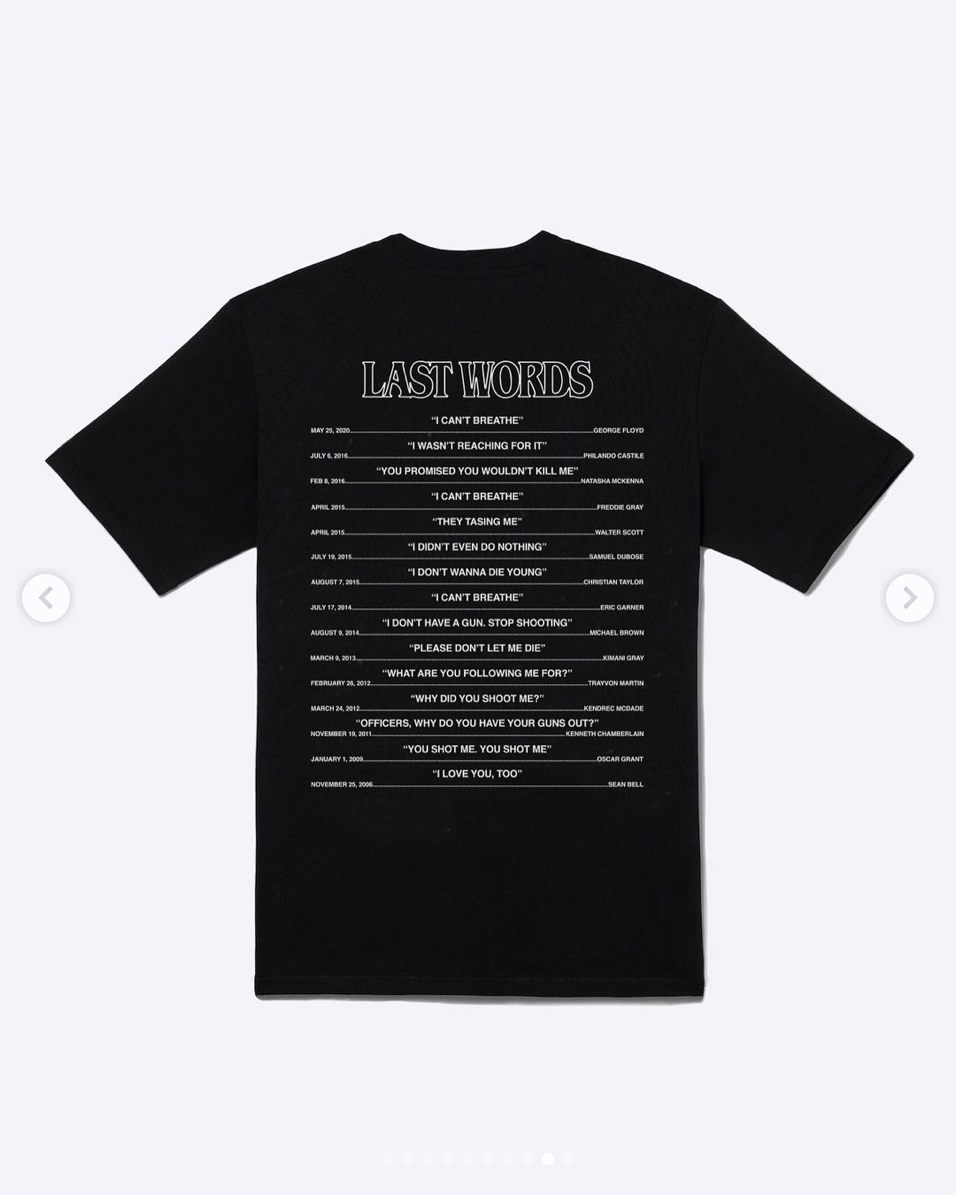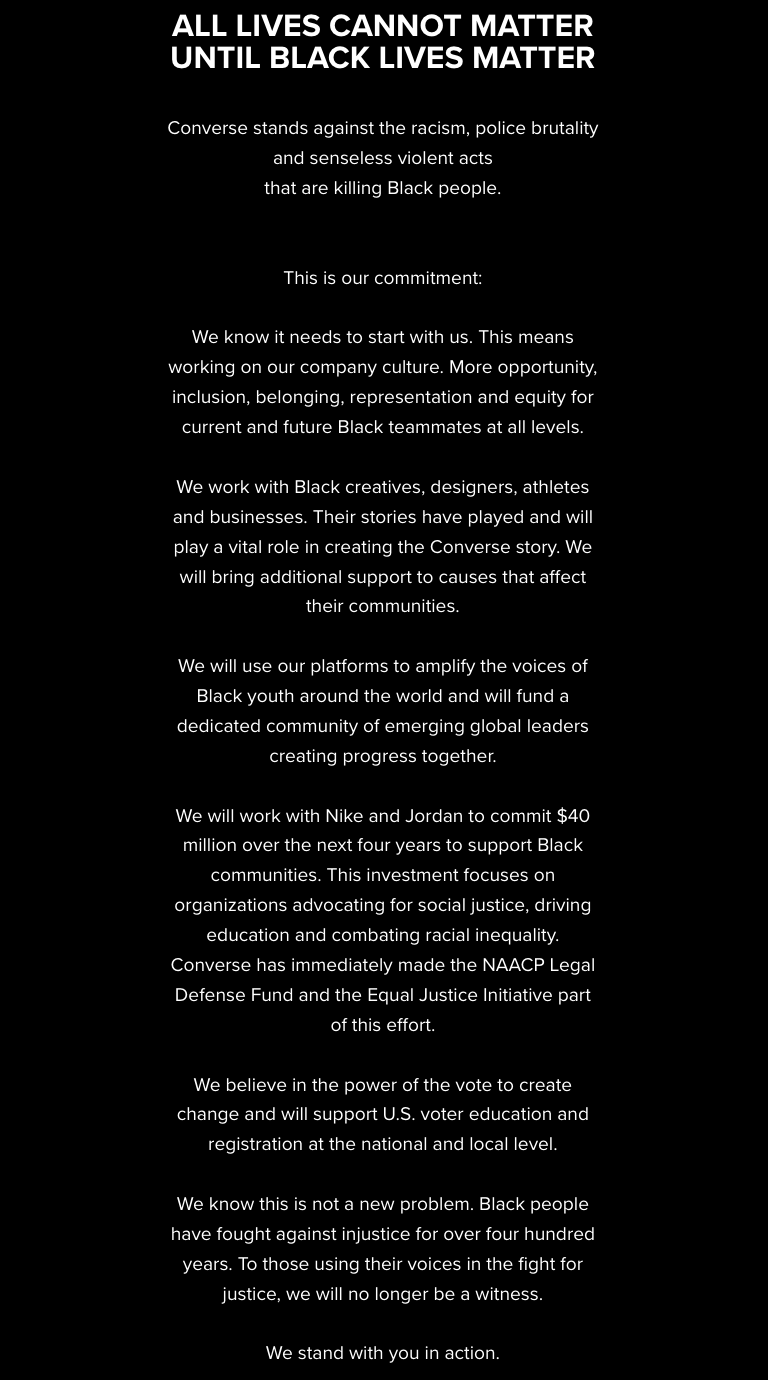Fight Like an Activist, Not a Consumer
Activism does not require buying material goods to show support. The Black Lives Matter movement is not just a phrase on a yard sign. Being anti-racist is more than aesthetically pleasing t-shirts and pins.

"Black Lives Matter." "Not Another Black Life." "No Justice, No Peace."
It’s everywhere—the past few months have seen an incredible boom in activism and protest in social movements. It is mind-blowing to see many people come together to fight for change.
However, to what extent is this support genuine? Is it a sincere self-dedication to allyship, or is it all for show?
As an African American, I have found myself asking myself these questions frequently over the past few months. I can always turn to my friends, who I have seen speak up in support of the movement and attend protests demanding justice for those whose lives have been lost. I have no problem affirming the sincerity of these actions.
But these social movements have also seen new cultures amount. With the worldwide explosion of protests following the murder of George Floyd—a central turning point in the ongoing racial unrest—the entire world began to shift, including the face of businesses in this country. Many began to modify their marketing tactics to address the current events.
By reducing a movement to merchandise and slogans, 'woke' corporations are encouraging a new wave of activism that is not allyship at all—it is superficial.
Since then, the truth has become clearer and clearer—mega-corporations don’t care about minority lives as much as they care about making a profit. It's most economical for businesses to prioritize driving profit based on public interest, so they engage in performative affairs to better their image and therefore increase sales. In this day in age, corporations actively profit off of social movements by producing commodities to appeal to the masses—"wokeness” is their profit motive.
With some companies advertising and selling merchandise with the image of supporting social justice amid political unrest, they directly capitalize on the injustices and oppressive systems they pledge to denounce. Consequently, to drive profit, companies maintain an incentive to keep those systems and the existence of these social issues in place.
To name an example, self-proclaimed "sustainable fashion" brand CHNGE has risen in popularity in recent months due to their large social media presence on apps like Instagram. CHNGE designs and sells clothing items with "activist" themes. One of their t-shirts lists Black lives lost to the police—directly commodifying and profiting off of minority lives that are lost. CHNGE claims to donate 50% of net profits to various organizations, meaning that they’ve taken in over $270,000 in income from their Black Lives Matter collections.
Take it from Business Insider writer Will Meyer, who argues that “Many of the same companies that say 'Black lives matter' are involved with the systems that continue to oppress Black Americans.”
“Since the death of George Floyd, corporations have seized the moment and pledged to take actions to divest from the harmful systems of American policing,” Meyer writes. “Yet despite these gestures that have gained untold ‘earned’ media for these companies, each one remains deeply invested in punitive systems that continue to harm Black and brown lives.”
Meyer highlights the hypocrisy from several multi-million-dollar companies—IBM, Amazon, Microsoft, Target, and Axon, among several others, are under fire. Many of these corporations have made an appearance of supporting the movement publicly, but obvious evidence proves otherwise.
Shoe retail giant Converse is a clear example of this hypocrisy. The company published a statement addressing its stance amid the racial unrest, pledging to do more to support Black lives. Its parent company, Nike, has been proven to uphold practices violating the human rights of its workers.
In an article for The Washington Post, Action Center on Race and the Economy Executive Maurice BP-Weeks offers perspective on corporate hypocrisy from someone in the banking industry.
“Corporate statements supporting Black Lives Matter stand empty, [Weeks] said, without meaningful actions such as directing profits back into black communities, eliminating racial pay disparities, increasing hiring from black neighborhoods and promoting black employees. ‘All of these things would show that this is more than just platitudes.’”

A T-shirt by CHNGE.
A T-shirt by CHNGE.

An official statement about the Black Lives Matter movement from Converse.
An official statement about the Black Lives Matter movement from Converse.
Between hypocrisies of business practices to the commodification of social change in apparel sites, I find these to be incredibly disheartening realities perpetuated by racial capitalism. With every minority that is marginalized comes an opportunity for corporations to diminish the value of their lives to material goods and slogans for the benefit of profit and performative activism—to the detriment of those directly impacted by social injustice.
Furthermore, these inhumane practices of commodification incentivize this type of performative activism. By reducing a movement to merchandise and slogans, “woke” corporations are encouraging a new wave of activism that is not allyship at all—it is superficial.
Through the surges of protests and unrest that has ensued, I have faced the fact that performative activism in anti-racist movements is a degrading and dehumanizing act that directly affects people of color.
Moreover, consumerism is not activism—they contradict each other intrinsically. When anti-racist protest is commodified, it is by definition no longer anti-racist due to the deep-rooted origins of systemic racism in the capitalist system.
The Black Lives Matter movement is not just a phrase on a yard sign. Being anti-racist is more than aesthetically pleasing t-shirts and pins. The power of fundamental social change should not be reduced to any of these things. Supporting these businesses by participating in their consumerist schemes directly supports the commodification of movements that aim for social justice, which ultimately minimizes the power of the people and prevents systemic change.
I urge my peers who seek to use their voices as activists to assess their involvement in social movements. We all need to ask ourselves questions like "How are my actions showing support?" "Who am I doing this for?" Is it to influence how others perceive your actions, or is it genuinely for the good of social change?
Allyship takes time—it cannot be achieved overnight, and activism does not require buying material goods to show your support.